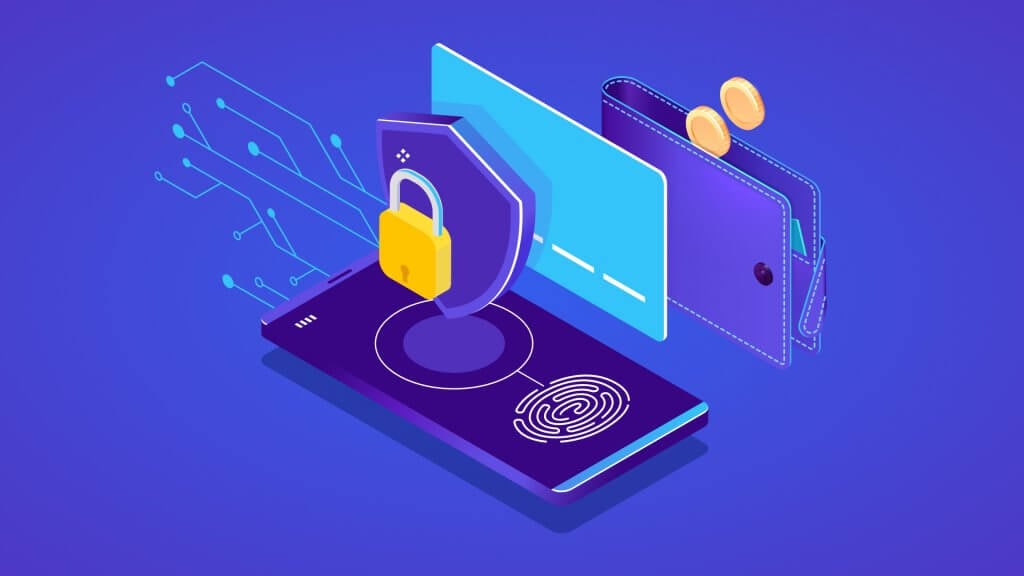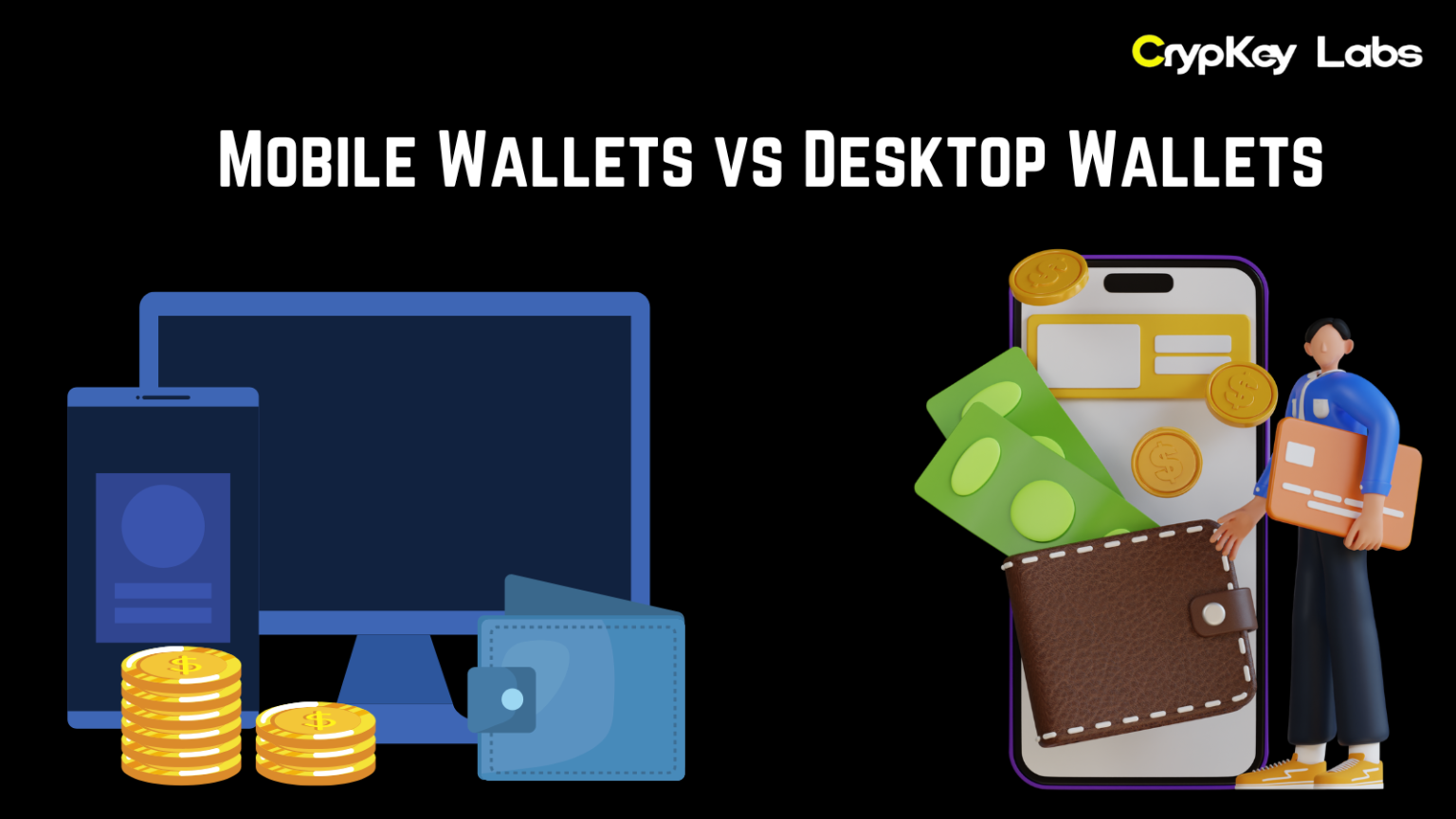Cryptocurrency wallets are the gateways to managing your digital assets. Whether you’re trading Bitcoin, holding Ethereum, or exploring NFTs, having a secure wallet is non-negotiable. But when it comes to choosing the right type of wallet, things can get a bit confusing.
The debate often boils down to this: mobile wallets or desktop wallets—which one should you use? Both have their strengths and weaknesses, and the decision depends on your lifestyle, security preferences, and how you interact with crypto.
Let’s dive into the world of mobile and desktop wallets, break down their pros and cons, and help you figure out which one suits your needs best.
What Are Mobile Wallets?
Let’s start with mobile wallets. These wallets are designed to run on your smartphone or tablet, allowing you to manage your crypto assets wherever you go. Think of them as the Venmo or PayPal of the crypto world—lightweight, user-friendly, and convenient.
Key Features of Mobile Wallets
- Accessibility: Mobile wallets are available as apps on iOS or Android, making them perfect for quick, on-the-go transactions.
- QR Code Support: Many mobile wallets support QR codes, simplifying payments and crypto transfers.
- Lightweight Design: Unlike heavy desktop software, mobile wallets are streamlined for efficiency.
Popular examples include Trust Wallet, MetaMask Mobile, and Coinbase Wallet.
Advantages of Mobile Wallets
- Convenience at Your Fingertips
With a mobile wallet, your crypto is always with you. Whether you’re buying coffee with Bitcoin or sending funds to a friend, it’s as easy as opening an app. - Beginner-Friendly
Most mobile wallets are designed with simplicity in mind. Their interfaces are intuitive, making them great for crypto newcomers. - Integrated Features
Mobile wallets often integrate with features like NFC payments, staking, or decentralized apps (dApps), making them versatile.
Drawbacks of Mobile Wallets
- Security Concerns
Your phone is a prime target for hackers, malware, or phishing attacks. If you lose your phone, your crypto could also be at risk. - Limited Storage Space
Phones aren’t built to handle the heavy lifting of managing large wallets or running resource-intensive applications. - Dependence on Internet Connectivity
Mobile wallets rely heavily on active internet connections, which can pose risks if you’re using public Wi-Fi.
What Are Desktop Wallets?
Now let’s talk about desktop wallets. These wallets are software programs you install on your computer or laptop. They tend to offer more advanced features, making them popular among experienced crypto users.
Key Features of Desktop Wallets
- Offline Storage Options: Many desktop wallets can operate offline, providing enhanced security.
- Advanced Functionalities: Desktop wallets often offer tools for portfolio tracking, multi-account management, and even trading.
- Robust Design: Desktop wallets are heavier and more comprehensive than mobile wallets.
Popular examples include Exodus, Electrum, and Bitcoin Core.
Advantages of Desktop Wallets
- Enhanced Security
Because desktop wallets can be used offline (cold storage), they’re safer from cyberattacks. You’re also less likely to lose your crypto if you secure your private keys properly. - Advanced Features for Pros
Desktop wallets often come with additional tools like advanced transaction customization, private key management, and integration with hardware wallets. - Larger Storage Capacity
Desktop wallets can handle larger amounts of data and transactions, making them suitable for power users and traders.
Drawbacks of Desktop Wallets
- Lack of Portability
Your laptop or desktop isn’t exactly pocket-friendly, so desktop wallets aren’t ideal for quick transactions on the go. - Risk of Device-Specific Failures
If your computer crashes or is infected with malware, your funds could be at risk. Backups are essential but require effort to maintain. - Steeper Learning Curve
Desktop wallets are typically less intuitive than mobile wallets, so they might feel overwhelming for beginners.
Mobile Wallets vs Desktop Wallets: Head-to-Head Comparison
Here’s how mobile and desktop wallets stack up in key areas:
1. Security
- Mobile Wallets: Vulnerable to hacking, malware, and device theft. However, using two-factor authentication (2FA) and biometric security features can help.
- Desktop Wallets: Generally more secure due to offline capabilities. However, they’re at risk if your computer is compromised.
Winner: Desktop wallets (for advanced security measures).
2. Accessibility
- Mobile Wallets: Extremely accessible for quick, everyday transactions. Perfect for users who are always on the move.
- Desktop Wallets: Less accessible due to their reliance on a fixed device, but great for long-term storage and management.
Winner: Mobile wallets (for on-the-go convenience).
3. User Experience
- Mobile Wallets: Intuitive and beginner-friendly, with straightforward interfaces and easy navigation.
- Desktop Wallets: Feature-rich but often more complex, catering to experienced users.
Winner: Mobile wallets (for beginners).
4. Use Cases
- Mobile Wallets: Ideal for small transactions, payments, and dApp interactions.
- Desktop Wallets: Best for long-term storage, active trading, and managing larger portfolios.
Winner: Tie (depends on individual needs).
Which Should You Choose?
So, how do you decide between a mobile wallet and a desktop wallet? Here are some pointers:
- Choose a Mobile Wallet If…
- You need a wallet for quick, on-the-go transactions.
- You’re new to crypto and want something simple to use.
- You frequently interact with dApps or use crypto for daily purchases.
- Choose a Desktop Wallet If…
- Security is your top priority, and you’re comfortable with offline storage.
- You’re managing large portfolios or engaging in active trading.
- You need advanced tools and features for in-depth crypto management.
- Or Use Both!
Many users find it helpful to use a combination of both. For example, you can use a desktop wallet for long-term storage and a mobile wallet for daily transactions.
Tips for Securing Your Wallet (Regardless of Type)
Whether you choose a mobile wallet, desktop wallet, or both, here are some best practices to keep your assets safe:
- Enable Two-Factor Authentication (2FA)
Always enable 2FA for an extra layer of security. - Keep Your Software Updated
Hackers often exploit outdated software, so keep your wallet app or program updated. - Backup Your Recovery Phrase
Store your wallet’s recovery phrase in a safe, offline location. This is your lifeline if you lose access to your wallet. - Avoid Public Wi-Fi
Public Wi-Fi networks are breeding grounds for cyberattacks. Always use a secure connection. - Use a Hardware Wallet for Extra Security
Pair your desktop or mobile wallet with a hardware wallet for the ultimate cold storage solution.
Conclusion
When it comes to mobile wallets vs. desktop wallets, there’s no one-size-fits-all answer. It really depends on your needs, whether it’s convenience, security, or advanced features. Mobile wallets are perfect for casual users and everyday transactions, while desktop wallets cater to power users and those prioritizing security.
The best part? You don’t have to choose just one. Many crypto enthusiasts use both to balance convenience and security. At the end of the day, the most important thing is to use your wallet wisely and keep your digital assets safe.
So, which wallet are you leaning toward? Let us know in the comments!







